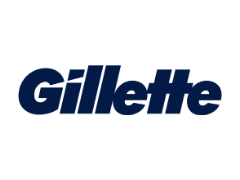
Name: Simone Chevalier
Title: McGill Urology Director of Research, McGill University Health Centre-Research Institute
Associate Professor, Depts of Surgery (Urology), Medicine and Oncology, McGill University
Scientific Director of the Quebec PROCURE Prostate Cancer Biobank
Occupation: Prostate Cancer Scientist
Location: McGill University
Prostate Cancer Research Span: Over three decades
Favourite Mo Mentor: My Husband
Q: Could you tell us a little bit about yourself and how you made it medical research?
I wasn’t meant to go to university. Coming from a less fortunate, large family in a small village, the majority of people I knew stopped their educations after high school. However, I always wanted to learn more. After being guided by my high school science teacher, I applied for student assistance, and later was accepted into the University of Montreal at the age of 16. I planned on becoming a teacher.
After my bachelors I found myself too interested in scientific discoveries related to medicine. I embraced the field of medical research because I wanted to work on tangible causes or problems for the benefit of patients.
Q: How did you find your way into prostate cancer research?
I was in Vancouver working in research, pursuing studies on intestinal cell renewal when I read a paper on prostate cancer. This sparked my interest and soon I was able to being work back in Montreal at Maisonneuve-Rosemont Hospital and U of Montréal. I helped identify non-androgen driven growth mechanisms through cultures of prostate cells. I have been working in this field for over 35 years now.
When I was invited by the McGill Urology chairman to develop research facilities in Uro-Oncology, I enthusiastically accepted the position. I was more than ready to work with newly recruited clinician-scientists coming back from their fellowships and fully understanding the value of basic research as a step towards translational research. I’m very passionate about getting new researchers involved in science and prostate cancer. As someone who is hungry for knowledge I like helping to inspire that in others as well.
I am also currently working with a pan-provincial prospective Prostate Cancer Biobank under the umbrella of PROCURE, the goal being to offer highly precious tools to the worldwide research community.
Q; How would you describe the GAP program and how it's global collaboration will effectively change the face of men's health?
I’m very excited by the proposal to create the GAP program; it’s not like anything else out there. The creation of the Global Action Plan to cover diverse research aspects of prostate cancer is a great initiative as before, too little funding was available for prostate cancer research. Global concerted efforts will make a difference for patients fighting the disease.
Q: What is the focus of your GAP research and what are the outcomes you hope to achieve?
Given our research interests and involvement in biobanking (an institution which stores samples), we joined the team on exosomes and expect to be part of the ongoing tissue biomarker project. By sharing our expertise and resources with investigators from all over the world, we expect that the combined projects will allow the identification of patients at higher risks to treat them better while saving low risk cases from undesirable side effects of treatment. We really look forward to the success of the Global Action Plan.
Q: What has Movember’s GAP funding allowed you to do that would not have otherwise been possible?
My research allows us to work directly with exosomes to discover if new molecules exists while looking for biomarkers to better diagnose most aggressive cancers. Working with patients with advance disease and characterizing what it is in their blood. Hopefully this will bring new molecules forward to be able to act as an indicator for advance prostate cancer.
Q: How does it feel to have more than 1.1 million Mo Bros and Sistas behind you, supporting your work?
It feels great because when the topic of prostate cancer research is mentioned, everyone around immediately thinks of Movember.
Q: Who has your favourite moustache and why?
Movember allowed my husband to look like what he did when we were younger, a time when he had moustache, beard and long hairs (a bit like Einstein). Unfortunately he took the liberty to cut both his moustache and beard when I was away at a scientific meeting. It took me a long time to accept him without facial hair.




.com_Carousel.jpg)








